If you are in the market for a new vacuum cleaner, you are probably wondering whether to go with Dyson vs Hoover.
Both household brands make solid vacuum cleaners but your choice will depend on factors such as your cleaning needs, features, and of course, your budget.
At the end of the day, both a Dyson and Hoover will get the job done. However, these brands use slightly different technologies, which can result in noticeable differences when it comes to cleaning performance.
Having tested various Dyson and Hoover vacuum cleaners for some time, I will explain to you some of the differences between these cleaners, so hopefully you can make a good decision.
Dyson Vs Hoover – Price Range

Price is obviously an important consideration when you are shopping around for a vacuum cleaner. Right off the bat, a Dyson vacuum comes at a premium price but boasts fancy features such as ball design for its upright and canister vacuums. Dyson features advanced technology such as radial cyclone, which delivers improved airflow efficiency and suction.
On the other hand, if you are looking for budget friendly vacuums, Hoovers are great options but this does not mean that they do not perform well. Models such as the Hoover React upright vacuum comes with advanced features such as swivel steering, LED headlamp, and wi-fi connectivity and cleans exceptionally well.
Dyson Vs Hoover – Cleaning Needs and Preferences
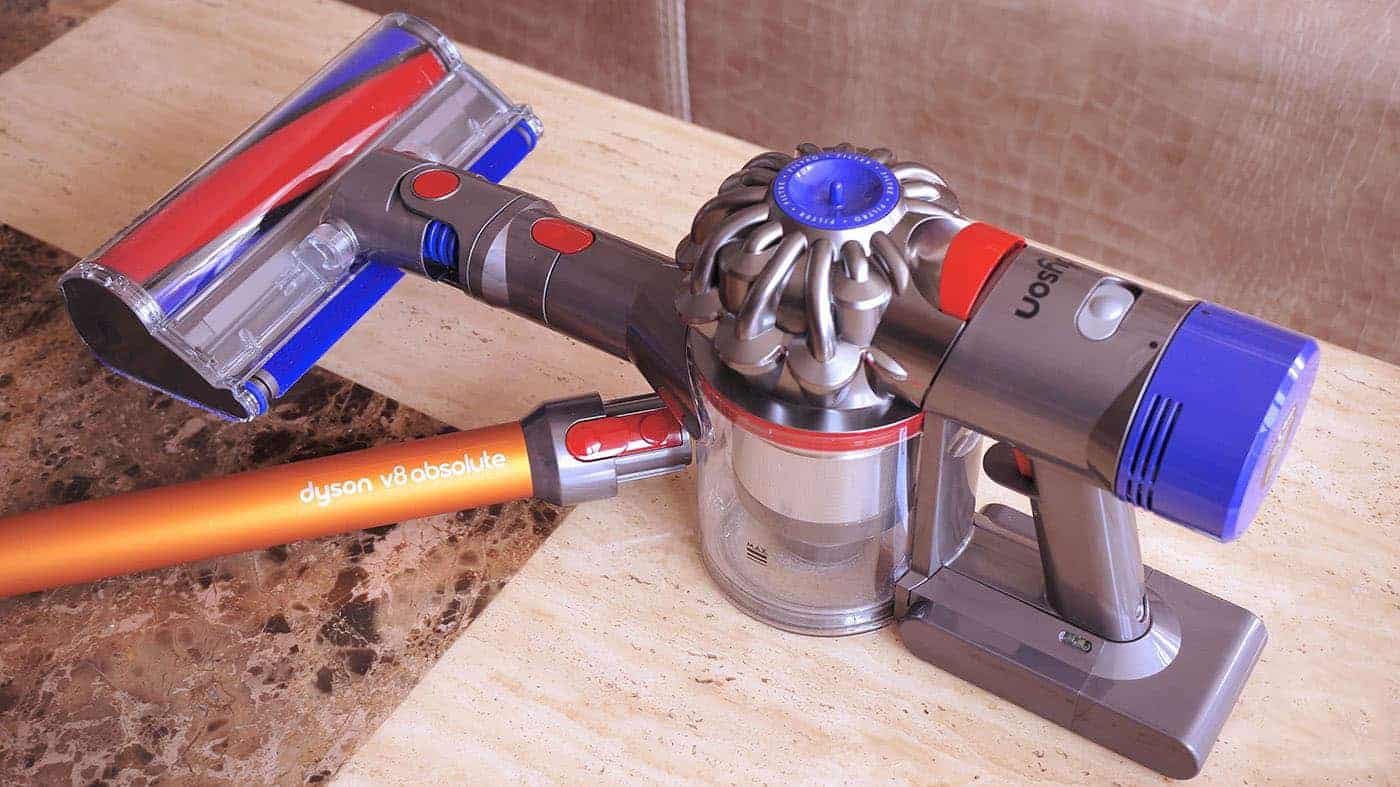
Something else you want to consider is your day-to-day cleaning needs. How often do you clean? How large is your home? Are you a pet-heavy household? What is your floor type?
For example, the Hoover WindTunnel Air Steerable Pet Upright Vacuum might be a good budget option for homes with heavy pets. On the other hand, if you are looking for an equally sturdy but lightweight and easy-to-maneuver vacuum for pet hair, the Dyson V-series of cordless vacuums might be worth looking at.
Dyson Vs Hoover – Upright Vacuums
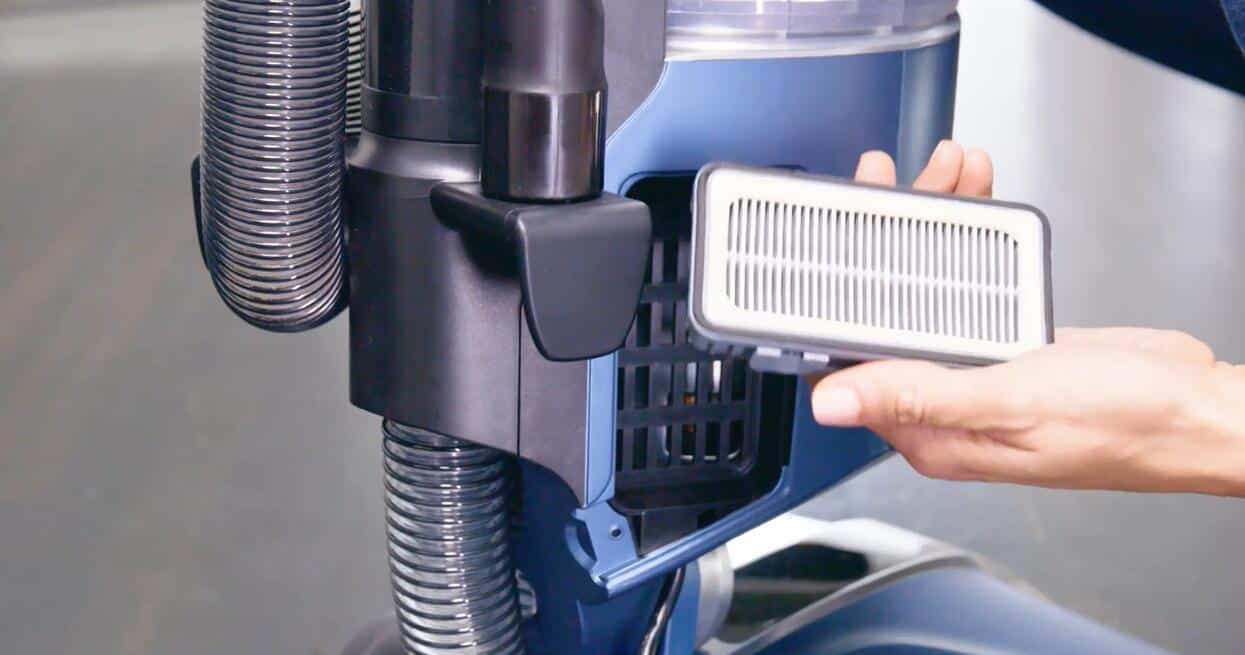
When it comes to upright vacuum models, Hoover has more choices, all at different price points. Comparing both brands, the dustbin capacity of a Dyson upright is significantly larger than that of a Hoover.
Additionally, most Dyson uprights do not come with filters to clean while Hoovers feature a carbon filter that needs regular cleaning. When it comes to filtration, Dyson boasts a sealed air system, which helps with indoor air quality.
On the other hand, the Hoover uprights have HEPA filtration but the company does not claim to have a completely sealed system. Therefore, Dyson might be a better choice if you are looking for a proven allergy-friendly vacuum.
Another distinctive feature of the Dyson upright vacuum is the big ball technology, which makes maneuvering the machine much easier unlike Hoover’s wheeled design in some of its models.
Both types of vacuums work exceptionally well on medium and high pile carpet and the Hoover does a particularly good job of sucking up small particles. However, Dyson packs quite a punch when it comes to overall suction performance and it might be a particularly good choice for busy and pet-heavy households.
Dyson Vs Hoover – Cordless Stick Vacuums
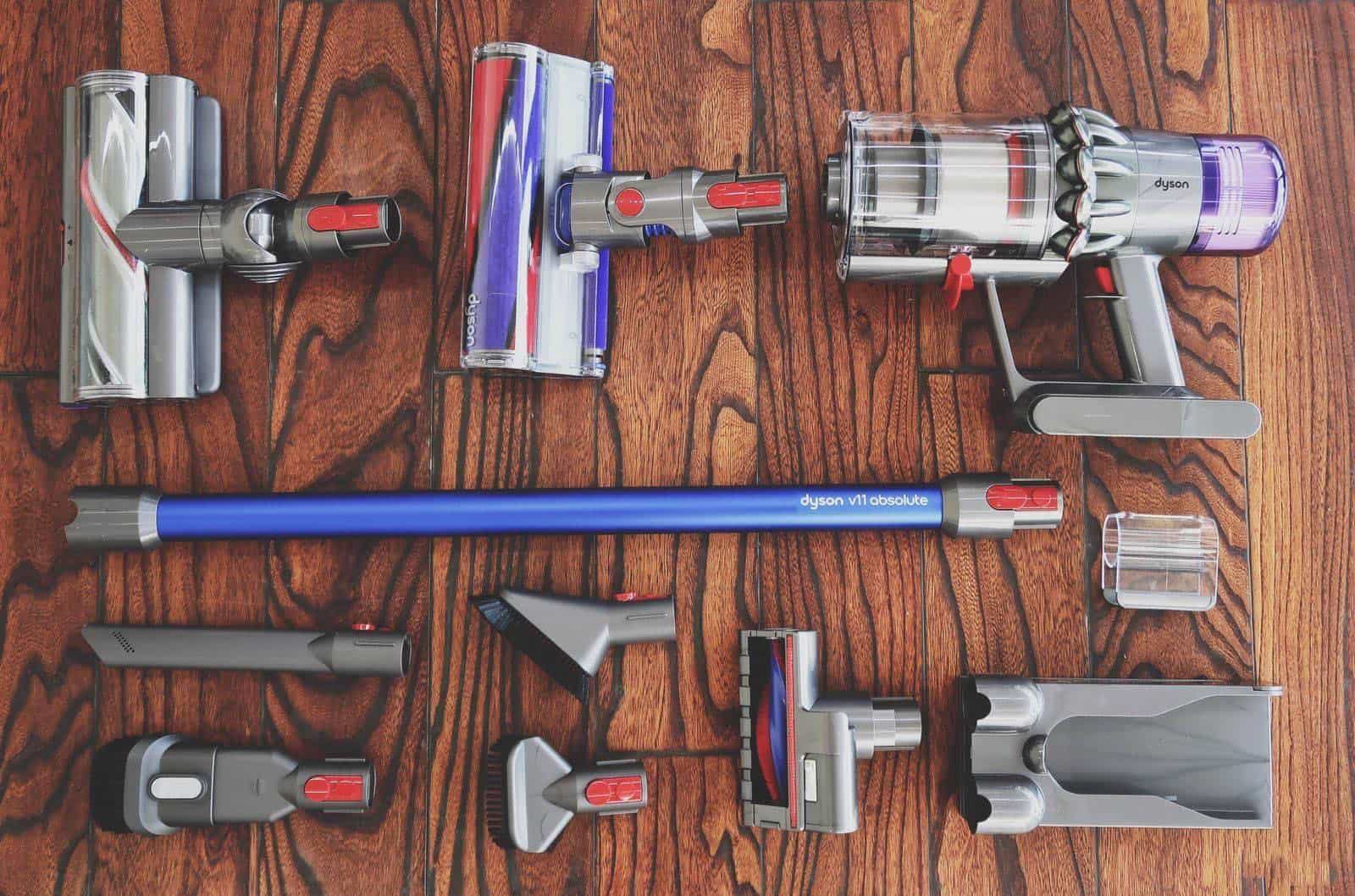
Dyson has been aggressive about standing out in the cordless stick vacuum market. Saying that this is their forte would not be an exaggeration. In the spirit of being an industry trendsetter, Dyson continues to make some of the most compact and lightweight stick vacuums around.
The V11 is Dyson’s latest stick vacuum. With a cleaning time of 60 minutes and pretty impressive suction, this cleaner might be a good choice for a medium-sized apartment with one or two pets.
Hoover’s Fusion Pet Vacuum Stick is an equally excellent choice if you are looking for a solid cordless vacuum for pet hair. It is lightweight, cleans set-in dirt with ease, and charges fast. However, this vacuum’s runtime is just about 20 minutes and the bin is comparably small.
Dyson Vs Hoover – Handheld Vacuum
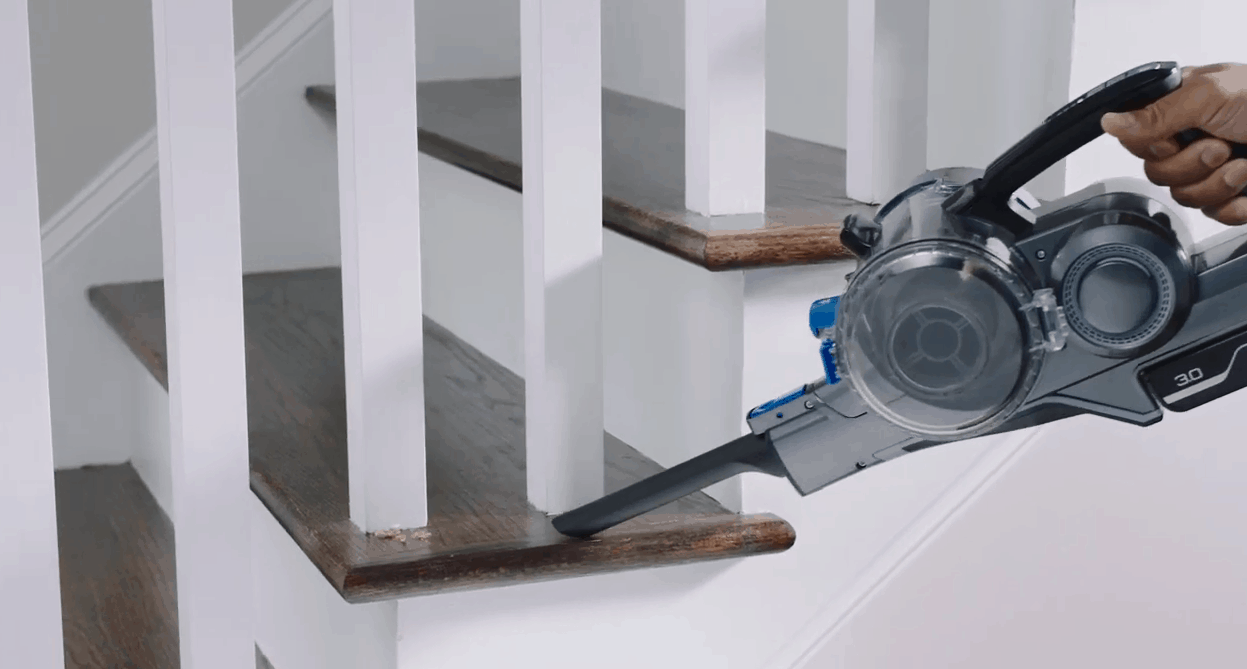
Dyson and Hoover both offer cordless handheld vacuums and in addition to the significant price differences, each has distinctive features.
For starters, Hoover has a wider range of handheld models, giving you more options depending on your budget and preferences. These portable, ergonomically designed vacuums suck smaller particles quite well and are a good choice for cleaning small messes in the car or around the house. On the downside, Hoover handhelds have quite a short run time of about 8 to 12 minutes yet require up to 8 hours to get a full charge.
In terms of suction and run time, Dyson is a clear winner. Thanks to the radial cyclone technology, the handled V7 series, for example, sucks up larger particles with more ease. It also provides a run time of about 20 minutes and needs to charge for approximately 3-4 hours.
Dyson Vs Hoover – Canister Vacuums
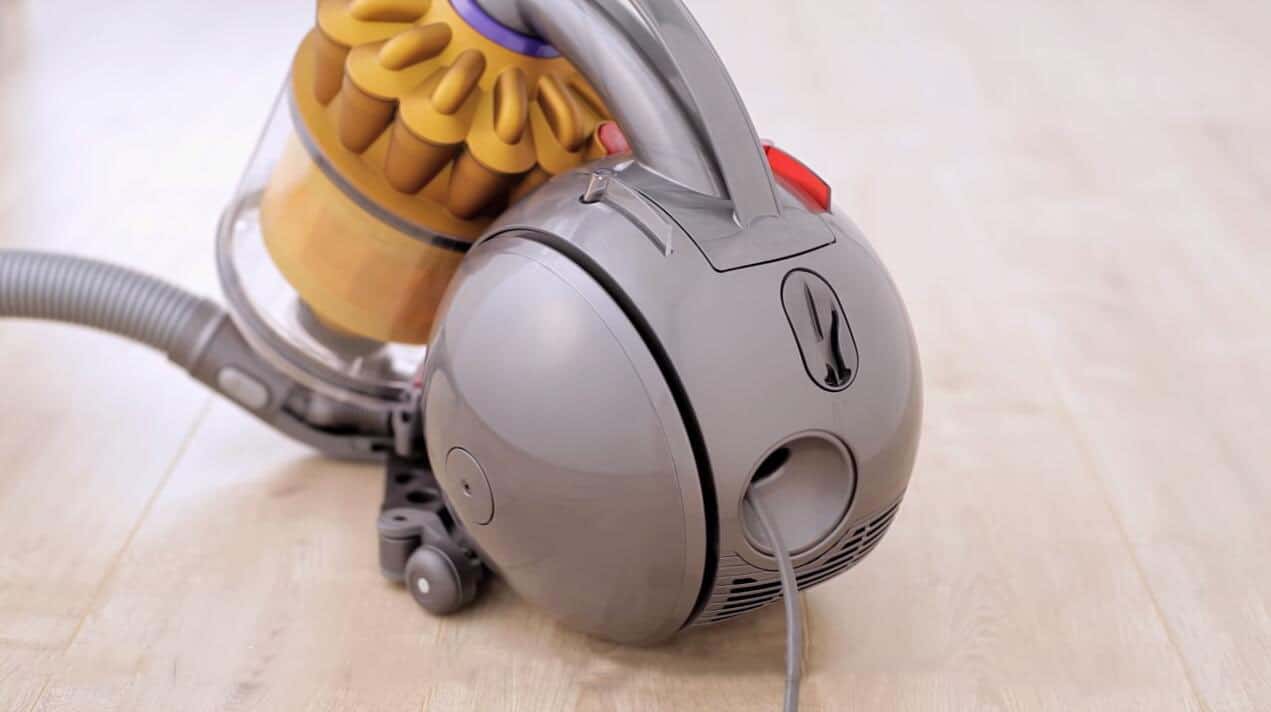
A canister vacuum can be a boon for multi-level households. Unlike an upright, you can easily carry the canister up and down the stairs.
Both Dyson and Hoover have a good range of bagless canister models. All canister models from the Big Ball Origin to the Big Ball Animal Pro feature the ball design, which allows the vacuum to return to its upright position when toppled over.
Additionally, the suction power on these big ball Dysons is quite impressive, thanks to the proprietary cyclone technology. These canisters also come with a handful of accessories for cleaning hard-to-reach places.
Hoover canisters are slightly heavier but clean exceptionally well. If you are looking for a canister model with plenty of accessories, consider checking out any of Hoover’s offerings. With a self-propelling powerhead, large easy-to-empty dustbin, and HEPA filtration, Hoover canisters give you true value for money.
Summary

In this Dyson vs Hoover review, it is clear that both brands have their strongholds and downsides.
All in all, Hoover might be an excellent choice if you are shopping on a budget but still want to enjoy the perks of a reliable cleaner. However, you might have to contend with fewer features and less tech.
Dyson might be an excellent choice if you have your eyes set on the latest cleaning technology. For a premium price, you get superior cleaning performance, advanced tech, and ease-of-use.
Got any questions or comments? Please leave them below!
